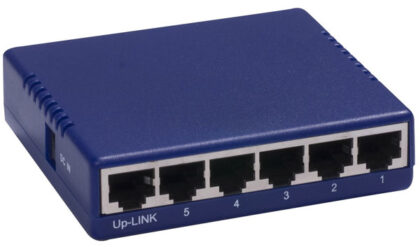Wi-Fi hotspots offer a wonderful solution to those on the move; these hotspots help people to stay connected to the net while they are away from their homes or offices. At the same time, people who use such networks regularly should also know how to protect a laptop in Wi-Fi hotspots.
Why should anyone be bothered about protecting their laptop in Wi-Fi hotspots? Unfortunately, too few people are aware that it can be dangerous for your mobile computer when you’re using it in a public place, like an airport, a coffee shop or a gym. If you want to protect valuable data on your computer and avoid unwanted concerns like hacking and scam networks, you should take enough precautions to protect your laptop while using public Wi-Fi hotspots. Here are the recommendations that will surely help.
First of all, if you want to protect a laptop from hackers, you should verify the credibility of the hotspot you want to use. If you have found a network with a name that seems strange or unusual, like “Free Laptop Network” or “Unlimited access”, that hotspot could be under the control of fraudulent people; and they could steal important information like your bank data. Hence it would be advisable to verify whether the hotspot is operated by a reliable provider. For example, if you’re eating out, you could ask a waiter what the “official” Wi-Fi network of a restaurant called, and only connect to it. This will save you from a great deal of trouble.
If you are the type of person who likes browsing at public places, you should know how to protect data on a hard drive of your laptop. Since these Wi-Fi hotspots are actually open networks, vulnerable to attacks from hackers and scammers, do not in any case hook up to them if you don’t have a firewall and all the latest operating system security fixes installed. Without taking these precautions you’re basically inviting intruders to break into your laptop and install malware onto it or steal files from your hard drive.
If your laptop is a part of a home or office network, chances are it has file sharing enabled. We strongly suggest you make a good habit of disabling any kind of file sharing when you are on the move. For example, in Windows 7 you would have to open Network and Sharing Center in the Control Panel, click on Change advanced sharing settings in the left column, expand your wireless networking connection and select Turn off file and printer sharing.

This is especially important if there’s any kind of valuable business or personal information stored on your laptop. If you want to protect your data while browsing at such hotspots, you should also think about installing high-quality encryption software on your laptop. This will prevent the hacker from accessing your laptop and he will not be able to steal your important data.
If you follow these steps to protect a laptop in Wi-Fi hotspots, your passwords and other vital information will be safe from the hands of hackers. Apart from this, you should also check whether your laptop is capable of connecting to a Wi-Fi network automatically. If this feature is available in your laptop, you should turn it off immediately. If you do this, your laptop will not log on to unauthorized networks automatically, without your knowledge. Better yet, you may want to completely switch off your Wi-Fi networking adapter when you are not planning of using it (check your laptop’s manual for a particular hotkey combination). Not only will it protect your laptop, but it’ll help you achieve better battery life from it.
If you are the type of person who uses Wi-Fi hotspots set up in public places like coffee shops, libraries, airports, etc., for professional purposes, you can make use of virtual private networks (VPN). You can approach your company for more help; or you can hunt for reliable service providers. Plenty of information is available online, and you can use these particulars for implementing a suitable VPN service. This will prevent security breaches; and you will be able to protect a laptop in Wi-Fi hotspots from the attacks of hackers.
About the author: Ronald Toms is a blogger who loves writing about computers and technology. He runs LaptopHQ.org, a blog about laptops, gadgets and accessories, check it out today!
For additional training resources, check out our online IT training courses.






